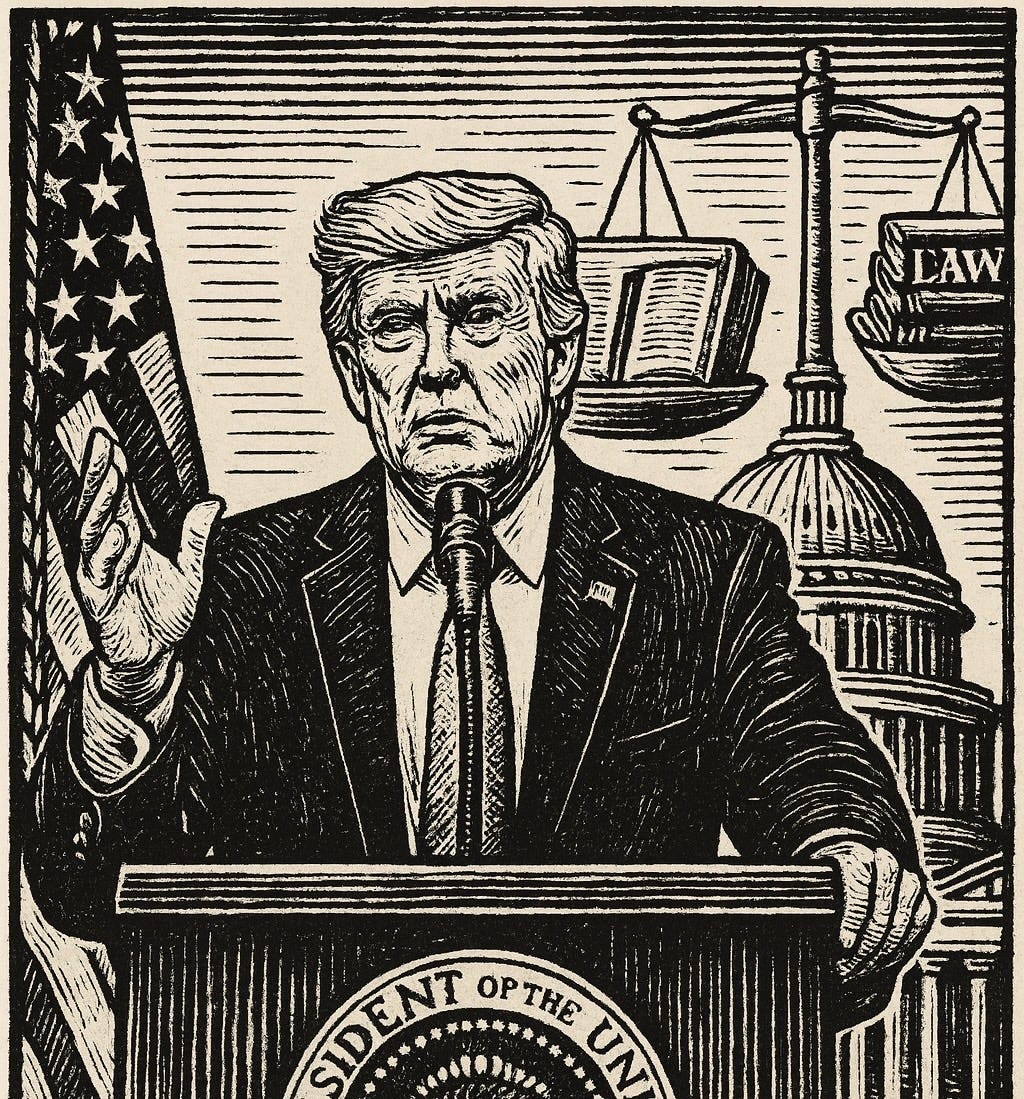President ties America’s future to revival of faith, blending political agenda with religious mission
By Michael Peabody –
On the morning of September 8, 2025, President Donald Trump delivered a speech at the Museum of the Bible in Washington, D.C., during what organizers described as a “historic meeting of the presidential commission on religious liberty.” The address presented politics and religion as inseparably linked, with Trump arguing that America’s strength, rights, and identity are rooted in faith.
Trump said the nation was “founded on faith” and declared that “we are 1 Nation under God and we always will be.” He told the audience that “when faith gets weaker, our country seems to get weaker… when faith gets stronger, good things happen for our country.” He added, “to have a great nation, you have to have religion,” describing faith as indispensable to the nation’s future.
He emphasized that America’s rights derive from a “creator,” citing the Declaration of Independence’s affirmation that individuals are “endowed by our creator with the right to life, liberty, and the pursuit of happiness.” By contrast, Trump said, “it is tyrants who are denying our rights and the rights that come from God.” He described his administration’s role as to “defend our nation’s glorious heritage” and “protect the Judeo-Christian principles of our founding” with “vigor,” pledging to “bring back religion in America. Bring it back, stronger than ever before.”
Trump highlighted policy steps taken in line with that view. He pointed to new Department of Education guidance aimed at providing “total protection” for prayer in schools. He said the “woke agenda” was “like a weed” that needed to be eradicated, criticizing schools for “indoctrinating” students with “anti-religious propaganda” and punishing them for expressions of faith.
One major policy highlighted was the elimination of the Johnson Amendment, a law that had restricted political speech by tax-exempt religious organizations. Trump said faith leaders were “petrified of it” and had been unable to “speak anything about politics” without risking their tax status. He said repealing the amendment allowed pastors, rabbis, and imams to “speak the truth” freely, adding, “you’re the people we want to hear from.”
The president also cited the creation of a Department of Justice task force to “eradicate anti-Christian bias,” saying that while anti-Semitism was often addressed publicly, “there is a tremendous anti-Christian bias. We don’t hear about it.” He tied this to education reforms, noting a “massive tax credit for school choice scholarship” so families could send their children to schools aligned with their values.
Personal testimonies underscored his themes. Hannah Allen of Honey Grove, Texas, described organizing prayer at her school despite administrative opposition, while 12-year-old Shea Cancis from California recounted being required to read a book about gender identity that contradicted her Christian beliefs. Trump said their experiences reflected challenges faced by Christian students across the country.
A central focus of the event was the “America Praise” initiative, announced by Secretary Scott Turner. Framed as part of the nation’s 250th anniversary, the program seeks to gather “America’s great faith communities to pray for our nation, and for our people, and for peace in the world.” Launched on July 3 in Iowa, it has already drawn support from more than 70 organizations including pray.com, Hallow, the National Religious Broadcasters, the Faith and Freedom Coalition, and Intercessors for America. The initiative’s goal is for 1 million people to join in weekly prayer until July 4, 2026, in small groups of ten, with Turner describing it as a way to bring “miracles” and “transformation” in communities.
Trump also suggested divine influence in national events, recalling Dr. Ben Carson telling him, “you’re going to win it because God wants you to win it,” and crediting God with America’s securing of the Olympics and the World Cup.
Commentary
President Trump’s speech reflected a broader political strategy that blends religion and governance while also drawing sharp contrasts with Democrats on cultural and legal issues. A recurring theme in his remarks was what observers describe as an “80–20 strategy.” By focusing on issues like gender identity and crime, Trump positions himself on ground where polls suggest about 80 percent of voters align with his critiques, leaving Democrats defending positions supported by closer to 20 percent.
This framing helps explain why he stressed actions such as declaring that the government recognizes only two genders, banning transgender athletes from women’s sports, and restoring law and order in cities. These policies not only appeal to his religious base but also target a much broader electorate concerned about the the cultural moment and rising crime.
For people who believe in a strict separation of church and state, this approach raises concerns. Government promotion of religion, combined with policy stances framed in theological terms, could blur constitutional lines and risk privileging one set of beliefs over others. Intertwining government authority with religious doctrine may sideline those who hold different convictions or none at all.
At the same time, Trump’s strategy reflects the frustration of many religious voters who feel secular institutions are increasingly hostile to faith. By linking cultural flashpoints with religious freedom, he channels that frustration into a political platform designed both to energize his base and to challenge opponents on issues where public opinion is tilted against them.
Tags: Museum of the Bible, President Trump speech, religious liberty, America Praise initiative, gender identity debate, 80-20 political strategy
